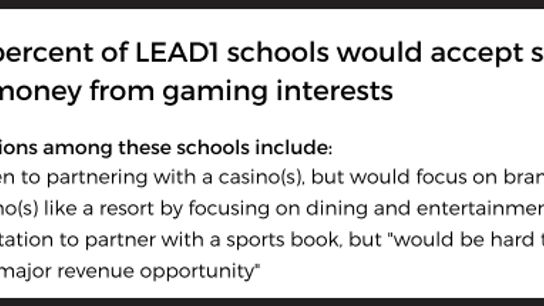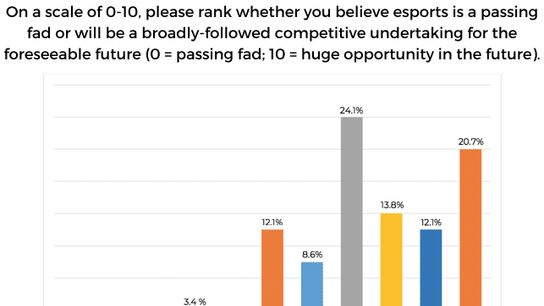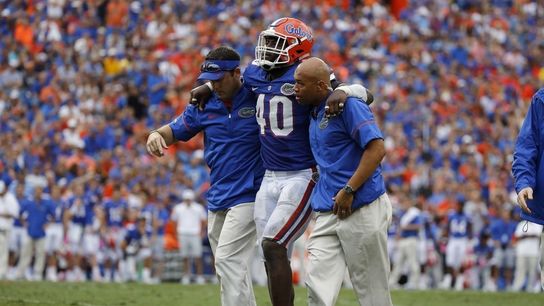One of the major discussions to spring, at least in the college sports industry, from the Supreme Court's overturning of the nationwide ban on sports gambling in May was if it would lead to a standardized injury report across the NCAA, at least for sports that would draw action at sports books.
The Big Ten over the summer pushed the NCAA's Football Oversight Committee for a nationalized injury system, and Ohio State AD Gene Smith made the case at the annual conference of ADs.
"We have to be more transparent," Smith said, via CBS Sports. "In football, we're going to kill this (idea of) gamesmanship around injuries."
The reasoning is simple: If sports gambling is coming, and there's nothing the NCAA, schools or conferences can do to stop it outside of throwing their weight around in the statehouses where it's being considered, then it's better for everyone involved to bring as much information as possible above board rather than create an underground system that would be ripe for abuse and corruption.
College football has enough problems on its hands as is. It doesn't need to add game fixing to the list.
Of course, this isn't a snap-your-fingers-and-make-it-happen issue. There are 130 FBS programs, not 32. There are 85 scholarship players on each roster, not 53. Within that, you're dealing with unpaid 18-to-22 year olds, not grown professionals. You've got a mix of public and private schools. And this doesn't even touch any potential HIPPA violations that could come into play.
These quotes seem to cut right to the heart of the objections coaches would have:
"I coached in the NFL for nine years and there is a stark difference between working with professionals and working with college kids," Stanford coach David Shaw told the AP. "I do not feel right giving out medical information of a 19-year-old. I think it's wrong in any way, shape or form."
"Whatever weaknesses or vulnerabilities that we have as a team, I can't possibly fathom why I would have any interest in revealing that to my opponent," Washington State coach Mike Leach told USA Today in January.
This is a decision that will be made at the AD and presidential level, and a slim majority of ADs are on board with it. LEAD1, the trade organization representing Division I ADs, polled its 130 members and found that 53 percent support the creation of uniform injury reports. Twenty-four percent were against and 23 percent took no position.
On top of that, 62 percent of ADs polled by LEAD1 said they'd support an integrity fee -- a fee paid to schools based on the total amount bet, which would have to be required by state legislatures -- to cover additional compliance costs, 27 percent are neutral and 10 percent are against it, saying that accepting an integrity fee would be akin to "the unintended encouragement of gambling."
While those ADs are in the minority, there's a larger minority at the other end of the spectrum, where 20 percent of ADs would take sponsorship dollars from casinos or other entities within the gaming industry.
One sample response thinks they could sell a casino sponsorships by branding it as a "dining and entertainment" sponsorship (and is thus lying to themselves) and another is bluntly honest.

Another major topic of the survey was esports. Fifty percent are considering adding varsity esports programs within the next five years, but a plurality (43 percent) think student-affairs is the best room within the university house to oversee an esports program, while 33 percent believe it would belong in athletics and 21 percent say it should be within an academic program, such as "engineering and mathematics."
Title IX was listed as a concern about bringing esports aboard, as 96 of esports athletes (gamers?) are males.
On the whole, FBS ADs are taking esports seriously. More than 70 percent view esports as a "huge opportunity," compared to 3.4 percent as a passing fad.

If esports is to become an NCAA-sponsored sport in the future, ADs would favor treating it like any other sport -- which means the athletes would need to leave any sponsorship opportunities at the door. Sixty-one percent of respondents either "disagree" or "strongly disagree" with the idea esports players should be compensated through competition payouts, while only 17 percent "agree" or "strongly agree."
